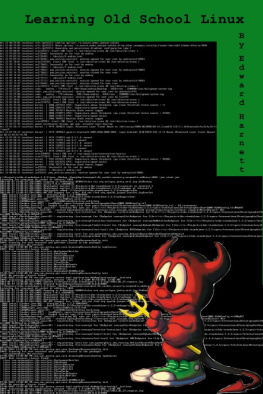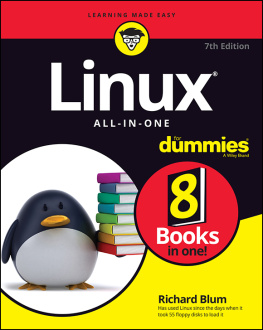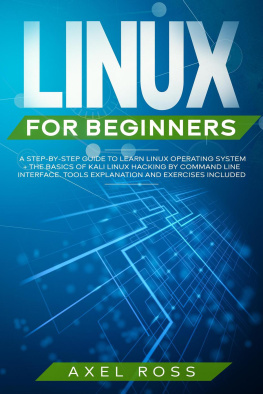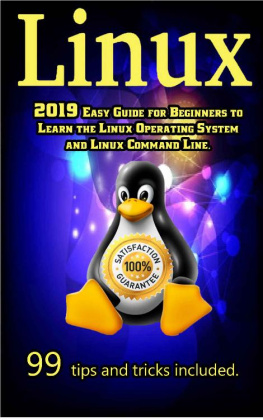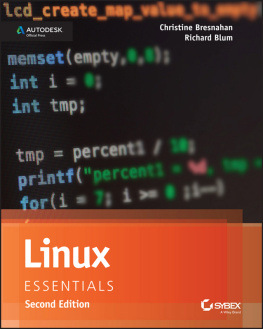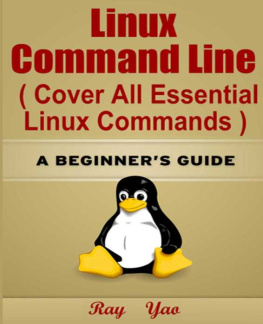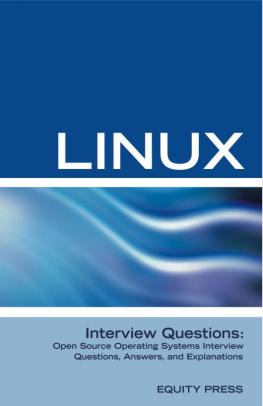Preface
I have many fond memories of writing forComputorEdge magazine.
In 2003, and for many years ComputorEdgemagazine could be found for free beside every supermarket checkoutor convenience store in Colorado. It was the place to go forlight-hearted local technology news, and to find local stores withthe best deals on computers.
I first started writing for ComputorEdge afterreturning with my family from some time abroad. I had been workingas a telecom consultant in London. The work was exciting, andinvolved learning a number of new technologies, including lots ofVisual C++ work. I found London to be incredibly exciting and fun,but also outrageously expensive. Money seemed to evaporate from mywallet at an unexpected rate, and yet we were living a lifestylefar less extravagant than American life in Colorado.
At the time, the technology magazine industrywas in its final flourish. The internet was new and google stillyoung. We had not yet formed the habit of looking up everythingon-line. Professionals in the IT industry looked to magazines tostay current and expand our skills. Magazines like Byte and DrDobbs Journal were extremely useful and very widely read. Therewere (and still are) magazines for every segment of the techmarket.
Needing money, I started supplementing my incomeby writing for various magazines, first in the UK, then in America.In those days one could easily make over $1000 for a good technicalarticle, even in the second-tier of magazines. And they were all sohungry for content!
As a contrast to the more technical magazines,ComputorEdge offered several attractive features for me. It wasweekly, with shorter, lighter articles. Heavy technical content wasnot what the editor wanted - he wanted entertaining writing for areadership who were not all computer programmers, but rather peoplewith other professions who nonetheless enjoyed learning a littleabout these amazing machines.
At ComporEdge I was one of a number of writerswho addressed the world of Linux. In those days Linux was still theprovince of computer-geeks. It was just entering the lexicon of themainstream computer user. Together with the other ComputorEdgewriters, I helped explain what was going on under the hood. Whatwas Linux, where did it come from, and where is it going? Thesewere the sorts of questions we answered for our readers.
Writing for ComputorEdge became my most funwriting gig. I got a chance to look up all sorts of historicaloddities and wonders, and I learned a lot. I also took the chanceto experiment with different writing styles, ranging fromstraigh-up instructional to humor.
This collection of ComputorEdge articlesprovides an easy-to-read ntroduction to the world of Linux as itdeveloped. I think they are still relevant, entertaining, andinformative, and I hope you will too.
Putting together this material as an ebook alsoprovides yet another technology learning adventure. The means ofproduction have truly been placed in the hands of the people - oneperson, working alone, and produce a book in a few hours. What willthis do for our information based civilization?
Historical Notes
The articles in this section relate primarily totwo giants of computer science: Richard Stallman and Donald Knuth.These two men have, with the work of their minds alone,fundamentally changed how we use computer systems. The articlesbelow are written with the greatest respect.
Richard Stallman: Innovative Geniusor Tinfoil-Hat-Wearing Nutcase?
Richard Stallman is one of the most influentialand productive computer programmers alive today. He may also be oneof the oddest.
Stallman's claim to programming fame began whenhe wrote a text editor called "emacs." The emacs text editor ismore than just an editor. It was, in fact, the first (and still thebest) integrated development environmentthe perfect tool forprogrammers in any of the many programming languages used in theUNIX world.
Emacs is still one of the most popularprogramming tools in use today, and would alone have ensuredStallman's fame. But it was what he did afterward that was destinedto have a far greater impact on the world: Richard Stallman foundedthe "free software movement."
Stallman is famous for his devotion to carefulterminology. He has acknowledged that his use of the term "freesoftware" has caused a lot of confusion. Free software doesn't meansoftware for zero cost; it means software that you have the freedomto use fullyto modify, to inspect, and to give to your colleaguesand friends.
As Stallman put it: Free as in freedom ofspeech, not as in free beer.
If you buy software from Microsoft, you haveonly the company's word for what the software does (if it eventells you).
When you use free software, you have the sourcecode. Just look and see for yourself what the software does. If youdon't like it, or find a mistake, you can change the softwaredirectly.
These pragmatic reasons for preferring freesoftware have been persuasive enough to convince many hard-nosedcorporate executives to depend upon (and contribute to) many freesoftware packages.
But these are not the reasons that inspiredRichard Stallman. His motives are more idealistic.
The Idealism Behind FreeSoftware
Stallman's ideas of software freedom wereinspired more by the "golden rule" than any attempt to improve thesoftware-development lifestyle. As explained in the originalannouncement of the GNU Project, Stallman said that he wantedprogrammers to work together to benefit society, not to workagainst each other in a quest for profit.
Stallman never objects to people working for aprofitmerely to the way in which the proprietary software industrycurrently makes a profit: by restricting the freedom of users tofully use the software.
Stallman's idealism led him to break with thedirection of software development in academia and industry. His GNUProject was so far from the norm that few knew what to make of it.No one could have predicted the effect that Stallman's effortswould have.
Stallman turned the world of softwaredevelopment upside down.
Almost 25 years later, the free softwaremovement is a major force in software. Many of the tools used inthe Internet are free software.
The GNU tools have also enabled a new operatingsystem, Linux (or as Stallman refers to it, Linux/GNU). The Linuxkernel would have been both impossible and useless without GNU,because it was inspired by and developed with GNU free softwaretools. And, without the GNU tools to run, the Linux kernel would beno more than an academic curiosity. The Linux kernel is the coresystem code that makes Linux work, but the GNU tools are what makeshaving a Linux system worthwhile.
Why Free Software ReallyWorks
Stallman's vision, though it seemed completelycrazy, has revolutionized software engineering.
Free software projects, unlike their proprietarycounterparts, continue to improve over generations ofdevelopers.
The efforts of a proprietary software companynecessarily stop with the end of that company, or that productline. No matter how many loyal fans there may be, no matter howmany users might depend on a piece of software, if the corporationthat owns it decides to drop it, or if it goes out of business,then that software package is dead. No one can maintain it. No onecan expand it. No one can port it to new computer systems.
With free software, good software becomesimmortal.
The result is that useful, free softwareproducts tend to get better over time, and there are many softwarepackages that have had several generations of developers, eachtaking over from the one before, without starting from scratch orthrowing away any useful work.
Stallman has often pointed out that freesoftware does not have to be developed for free, or given away forfree. But the free software model does change the economic model ofthe software industry.

